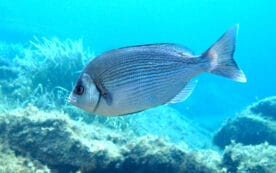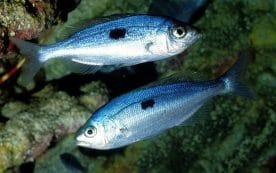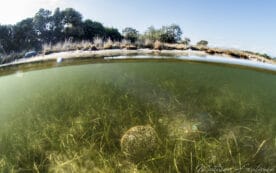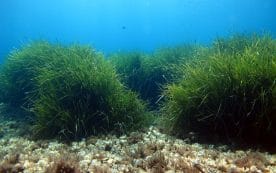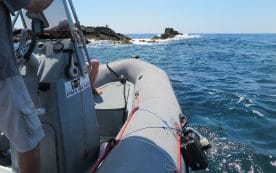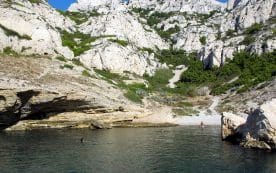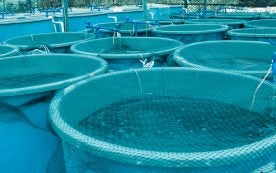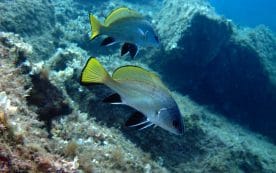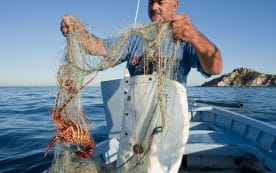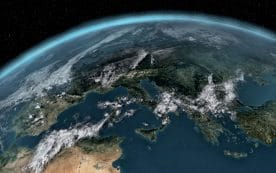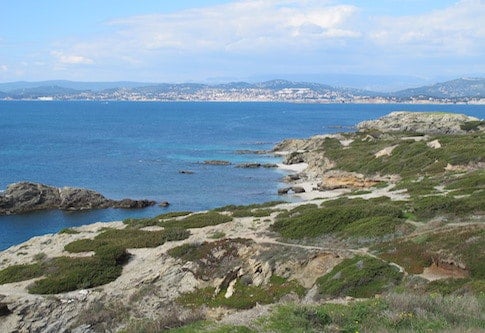
At the end of 2020, more than 600 researchers, working together in the framework of independent network of Mediterranean experts on environmental and climatic change (MedECC), published a report dedicated to scientific knowledge on the Mediterranean area. The region, already severely impacted, is going to have to deal with a range of challenges.
The rise in temperature in the Mediterranean basin has already reached 1.5° C for a worldwide mean average of 1.1 °C; the region features today among the world climate change hotspots because of its vulnerability to a spectrum of accumulated risks. The goal of the network, in addition to pooling all the available data, is to generate synergy between all the fields of competence involved, at Mediterranean region scale, to make available to deciders the essential information and ways forward, taking into account the upcoming issues.
Populations impacted by the rise in sea level
Today, more than 500 million people are living in the Mediterranean area, a number that will continue to increase in the coming decades. Most of the population live near the coast, and are at risk of being quickly impacted by the rise in sea level. Over the past century, it has risen almost 20 cm, as has the global ocean, with an rate of increase accelerating by 6 centimetres over the past 20 years ! Here too, despite the forecasts realised, it is impossible to provide definite figures, but it is perfectly envisageable that the phenomenon is speeding up. Many Mediterranean cities, such as Marseille, are likely to be directly impacted. Rural areas and farmland will be too, with the salination of the soil, particularly severe in delta areas. The experts reckon that the risks of coastal flooding, between now and 2100, will probably increase two-fold, with a mean sea level rise that could be more than a metre according to the most pessimistic scenario. To that must be added coastal erosion, at a rate estimated at 13% over the same period.
A probable decline in the water resource
Water resources, because of the temperature increase, added to the worldwide reduction in precipitation, will decline. And even though today it is impossible to estimate with precision by how much, the expert group places it at between 10 and 30% over the next twenty years or so. But there is already an imbalance: three quarters of the water resources are used in the north of the basin, whereas three quarters of the population live in the southern half ! Solutions will have to be sought, whether through the irrigation of farmland or wastewater management, in order to meet the needs of all. All the more so because the productivity of the farmland is on the decline with the temperature rise. Corn production, for instance, would fall by 7.5% per degree of warming. Finally, the rapid increase in what we call ‘heat waves’, in frequency and intensity, will have a human health and social impact which will have to be reckoned with.
Destructive climatic episodes
The worldwide decline in precipitation will moreover be matched, even if that may seem paradoxical, by a sharp increase in destructive episodes, as has become apparent for the past ten years or so: intensive rainfall, concentrated both in duration and localisation, causes unprecedented flooding, with a whole procession of material damage but also, more and more often, loss of human life. These ‘Mediterranean episodes’, which generally occur in the Autumn, are related to stormy phenomena when the outer atmosphere cools while the surface waters of the sea remain warm. They are likely in the future to increase in number and intensity, inasmuch as the water temperature is constantly rising and does not drop rapidly at the end of the summer, as was still the case a couple of decades ago.
Alteration of the biodiversity
In 25 years, the Mediterranean sea has warmed up by 1°C, and this increase in temperature could reach 2.5°C over the coming century. By offering conditions favourable for the arrival of so-called tropical species, there is a risk that in due course, it will alter our biodiversity. The ecosystems have always undergone external influences, and an alteration of the biodiversity dos not necessarily signify depletion. But the phenomenon is speeding up and does not always leave nature time to adapt: when an invasive species settles, if it does so too quickly, it will take the place of a traditional local species. This is what might happen, for example, with the salema porgy, in direct competition with the rabbitfish, another herbivore and more and more frequent. This too rapid pattern of change might endanger our ecosystems by destabilising them.
The acidification of the water
The absorption of atmospheric CO2, as elsewhere, limits the warming of the atmosphere, but disturbs the chemistry of the water and causes its acidification. It is estimated in the north-western Mediterranean that this acidity has increased by 10% in 25 years. At the current rate of emissions, it might increase by a further 30% by 2050, which would jeopardise numerous species.
Apart from the capacity for adaptation and resilience of our Mediterranean basin, the report concludes in the absolute necessity of drastically cutting greenhouse gas emissions in the region, the only way to avoid a climate disaster, which would of necessity be a socio-economic disaster too.
#mediterranean #climate #biodiversity #medecc
Picture P. Lelong, Les Embiez island.




